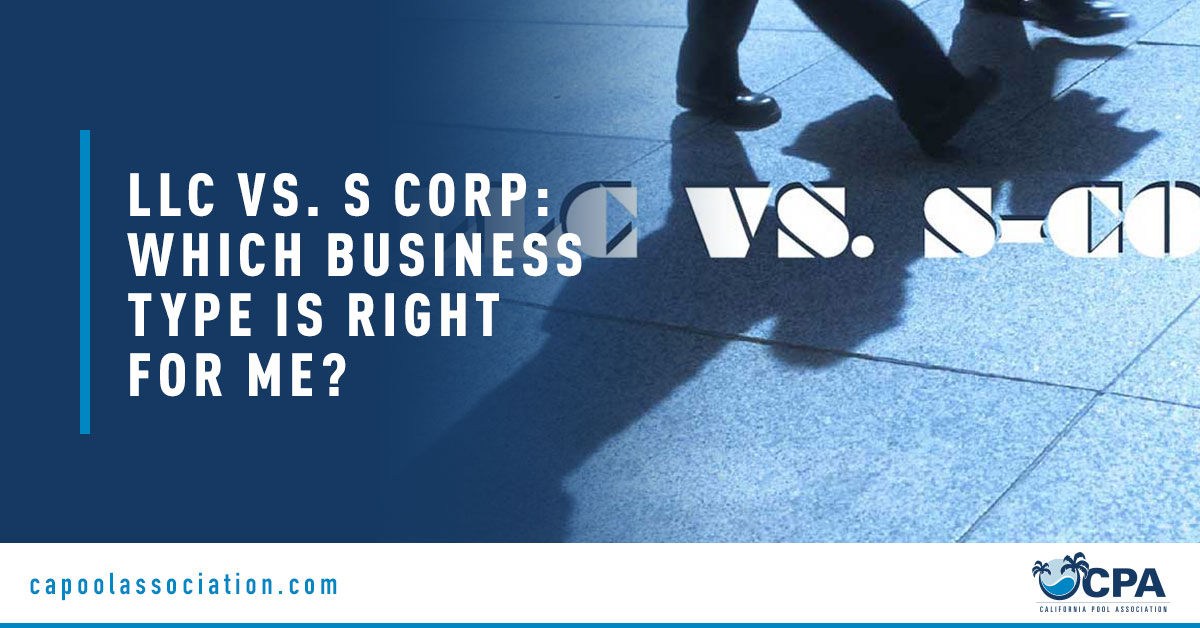While a limited liability company and S corporation share many qualities, they also have distinct differences. Get familiar with each before deciding which might be right for you.
Limited Liability Company (LLC)
LLCs are praised for their simplicity and flexibility. Here are some key points:
- Liability Protection: LLCs offer personal liability protection, which means your personal assets are shielded from business debts and lawsuits.
- Tax Flexibility: LLCs are typically taxed as pass-through entities, meaning profits and losses pass through to the owners, who report them on their personal tax returns. However, you can opt for corporate taxation if that’s more favorable.
- Management Flexibility: There’s less formality and fewer compliance requirements in an LLC’s management structure. You can run it in a way that suits your business model.
- Profit Distribution: LLCs have flexibility in how they distribute profits among members.
- California-Specific Fee: It’s essential to note that California imposes an annual minimum franchise tax of $800 on LLCs, plus an additional fee based on revenue.
S Corporation (S Corp)
S Corps are known for their tax benefits and structure. Here are their key features:
- Liability Protection: Like LLCs, S Corps provide personal liability protection to their owners.
- Tax Savings: S Corps can offer tax savings as only the salary paid to owners is subject to self-employment tax, not the entire business profit.
- Corporate Structure: S Corps have a more rigid corporate structure with directors and officers, providing a clear hierarchy and roles.
- Shareholder Limitations: S Corps are limited to 100 shareholders, and all must be U.S. citizens or residents.
- Profit and Loss Allocation: Profits and losses are allocated based on share ownership, making it straightforward but less flexible compared to LLCs.
S corps have directors and officers. The board of directors oversees corporate affairs and handles major decisions but not daily operations. Instead, directors elect officers who manage daily business affairs.
Making Your Decision
Your choice between an LLC and an S Corp in California should hinge on your long-term business goals, the level of flexibility you desire in managing your business, and your preferences regarding taxation.
- If you value simplicity, flexibility in management, and profit distribution, an LLC might be the more suitable option for you.
- Conversely, if you’re looking to save on self-employment taxes and prefer a structured management setup, an S Corp could be a wise choice.
Additionally, consulting with a business attorney or a tax advisor to understand the full implications of your choice is highly advisable. They can provide personalized advice based on your individual circumstances and business goals, ensuring you make an informed decision that will benefit your enterprise in the long run.
TLDR
The choice between an LLC and an S corp depends on various factors, such as the number and type of owners, the tax implications, the management structure, and the legal requirements. Here are some general guidelines to help you decide:
- You should choose an LLC if you want a simple and flexible business structure that provides limited liability protection and pass-through taxation. An LLC is suitable for sole proprietors, partnerships, or small businesses with few owners. An LLC can also elect to be taxed as an S corp or a C corp if it meets the IRS criteria.
- You should choose an S corp if you want to save on self-employment taxes and have more credibility as a corporation. An S corp is suitable for small businesses that meet the IRS requirements, such as having 100 or fewer shareholders who are individuals and U.S. residents, having only one class of stock, and filing a form with the IRS to elect S corp status. An S corp also provides limited liability protection and pass-through taxation, but it has more regulations and formalities than an LLC.
Both LLCs and S corps have their advantages and disadvantages, so it’s important to consult a tax professional or a business attorney before making a final decision. You can also learn more about the differences between an LLC and an S corp from these sources: LLC vs. S Corporation: What’s the Difference?, LLC Vs. S-corp: What Are They And How Are They Different?, LLC vs. S Corp: Differences & How to Choose.
Does LLC have to be in the name of the company?
Yes, an LLC must have a name that indicates that it is an LLC. This means that the name must include a designator such as “LLC”, “L.L.C.”, “Limited Liability Company”, or “Limited Liability Co.” at the end of the name. This is to inform the public that the business is an LLC and has limited liability protection. For example, if your business name is “ABC”, you cannot register it as an LLC without adding a designator, such as “ABC LLC” or “ABC Limited Liability Company”.12

